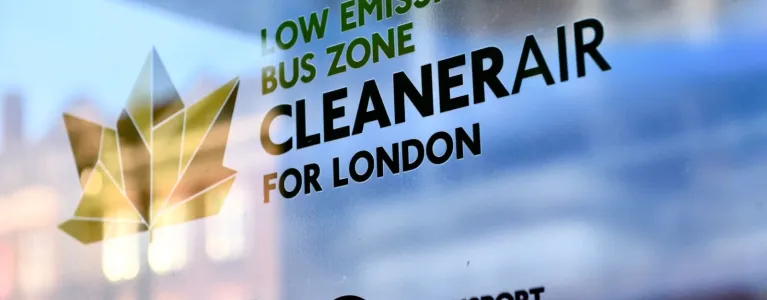
Dolly Oladini, Project Officer in the Environment team, tells us how the International Zero Emission Bus Conference went last week - starting with the unveiling of the world's first hydrogen double-decker bus . . .
An important day . . .
It was a day that we'd been planning for 18 months. We knew it would be challenging, but we were determined to see it succeed - and I think it's safe to say we did.
The Mayor, Sadiq Khan, has put improving our air quality at the top of his agenda. He's asked other cities to follow suit with ambitious but achievable targets. We were therefore delighted that he agreed to speak at our International Zero Emission Bus Conference last Wednesday.
At 1am the world's first hydrogen double-decker bus appeared behind City Hall. It remained there during a beautiful sunrise and grandly greeted city workers and tourists throughout the morning. Sadiq and Deputy Mayor of Transport, Val Shawcross, then unveiled the bus to the world at 9am. The EU Transport Commissioner Violeta Bulc also attended to highlight the European Commission's efforts to support and encourage the uptake of zero emission buses across Europe.
Who was there?
We were supported by Element Energy, the Center for Transport and Environment (CTE), a non-profit American organisation, the Fuel Cells and Hydrogen Joint Undertaking and the C40 Cities Climate Leadership Group. Their diverse connections brought together cities, manufacturers, financiers and technology providers from 22 countries. As an extra lovely touch, CTE made a donation to the Arbor Day Foundation on behalf of the conference. Arbor Day partner on reforestation projects around the world.
The day started perfectly, with 11 cities (New York, Los Angeles, San Francisco, Amsterdam, Copenhagen, Rugao, Paris, Madrid, Hamburg, Mexico City and Cape Town) responding to Sadiq's call to create tangible plans to phase out their purchasing of pure diesel buses by at least 2025. Together these cities have committed to purchasing 1,000 zero emission buses, using either electric or hydrogen technology, over the next five years. This follows the commitment made by the 26 cities who signed the C40 Clean Bus Declaration in June 2015.
On the day, bus manufacturers were competing with each other to showcase how they're the best at producing zero emission buses. I think this is a clear sign that we must be shaking up the sector.
Promises from the Mayor
Their announcements came before Sadiq's speech in which he revealed:
- no more pure diesel double-decker buses will be added to London’s fleet from 2018
- all new single-decks for central London will be zero-emission from 2020
- roughly 300 zero emission buses will be purchased by 2020
In his speech, Sadiq said:
I want London to become a world leader in hydrogen and electric bus technology. I’m implementing hard-hitting measures to clean-up London’s toxic air and it’s great that more cities are getting on board to phase out the procurement of pure diesel buses which sends a clear signal that only the cleanest technologies are wanted in our cities.
Transforming London’s bus fleet by accelerating the introduction of zero emission buses is important and I plan to work with bus manufacturers, other cities, the European Commission and the C40 Climate Change Leadership Group of Cities to move this agenda forward.
London: a leader in zero emissions technology
Our city is already a leader in zero emission technology. There are 71 battery electric buses in service on the 507, 521 and 312 routes (the largest fleet of battery electric bus fleets in Europe) and eight hydrogen single-deck buses on the RV1 route (the longest running hydrogen bus fleet in the world).
Excitingly there will be at least 20 new hydrogen buses delivered in London as part of a £10m part-EU funded project, with TfL providing at least an extra £5m.
The new hydrogen double-decker will be trialled on London’s roads next year. It's made by leading UK bus manufacturer Wrightbus, based in Northern Ireland. Hydrogen has the potential to fully decarbonise transport and eliminate harmful local emissions, therefore improving our air quality as they produce zero tailpipe emissions.
It's estimated that the equivalent of 9,400 premature deaths occur each year in London due to illnesses caused by long-term exposure to air pollution. Diesel vehicles are recognised as a major contributor to pollution and associated health impacts.
The next steps
To help cities shift from diesel to green technology, C40 announced it will host a Finance Academy in April to help cities discover funding for more zero emission buses and the supporting infrastructure required.
As greener buses often have higher up-front costs than polluting diesel buses, the Academy is a great way to fully support this change.